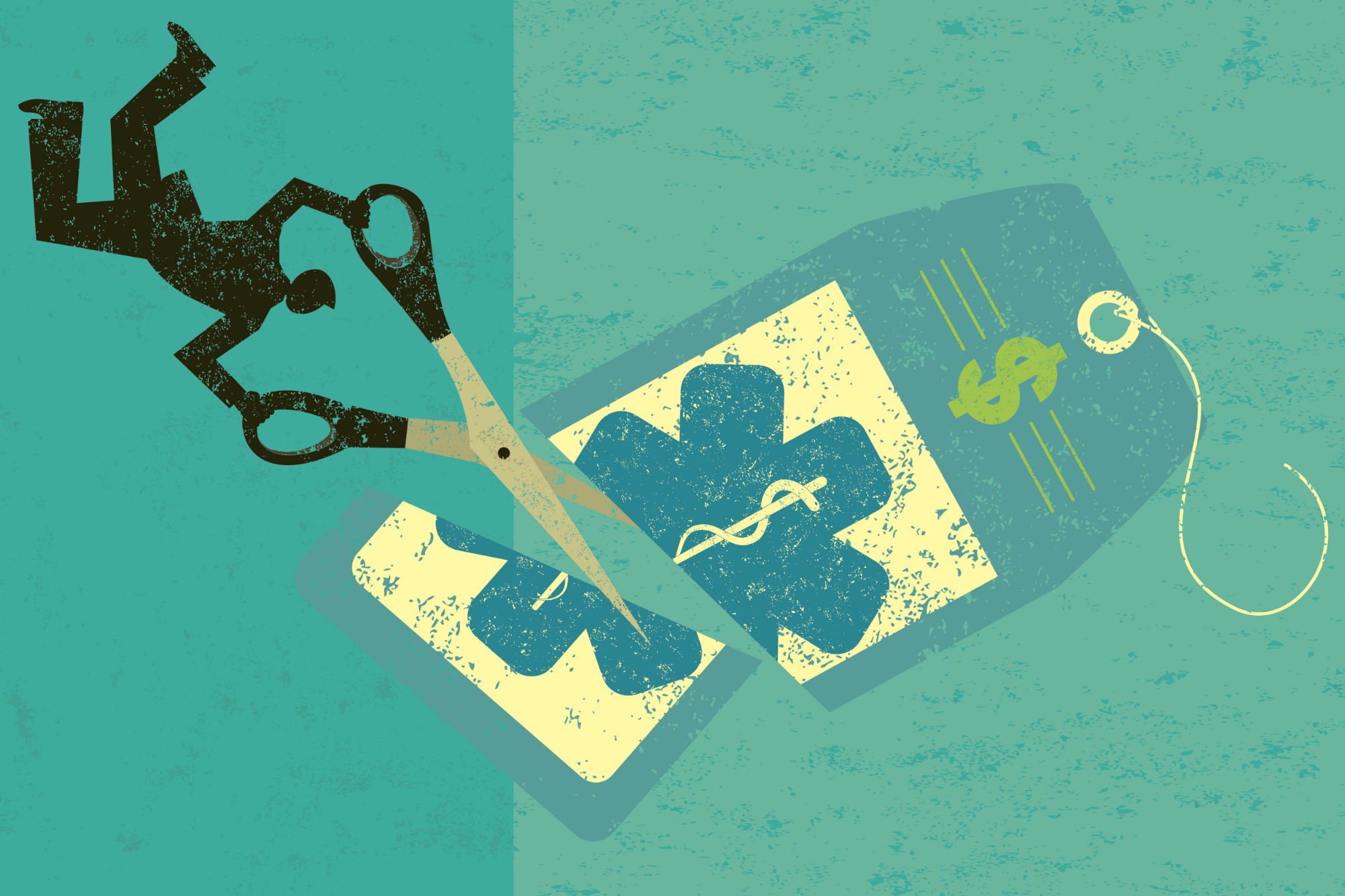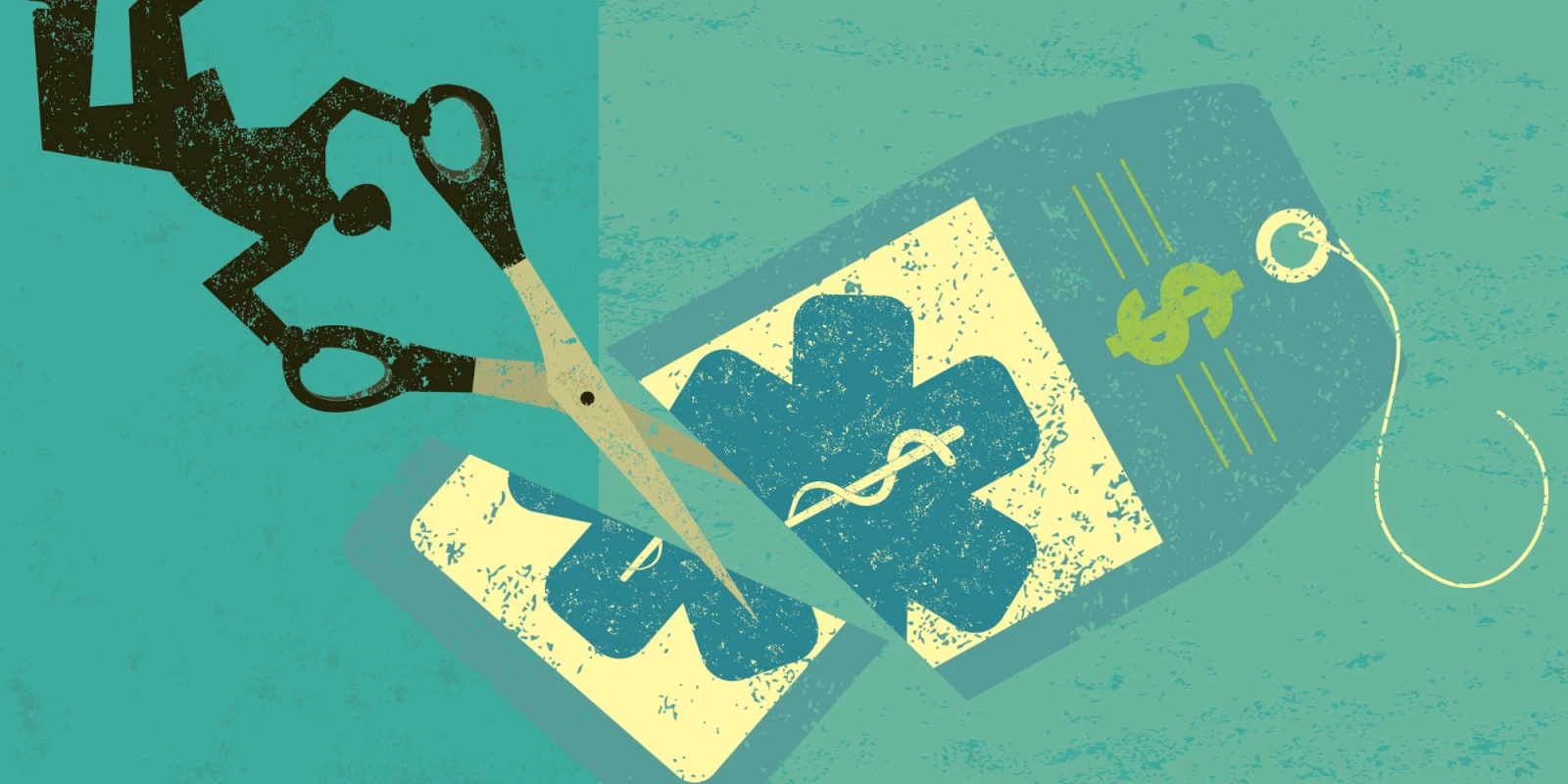
Recent national polls find that 66% of American adults cite the cost of health care as a major stressor. 29% of those who have medical insurance put off medical treatment due to costs, often with detrimental consequences. Medical bills continue as the #1 cause for personal bankruptcy. As clinicians, we know that financial hardship can aggravate patients’ medical problems. Acknowledging our understanding of our patients’ worry about incurring medical debt and providing simple-to-implement strategies for minimizing debt exposure would strengthen the clinician-patient relationship and improve compliance with follow-up visits. Encouraging our patients to discuss these concerns with a billing manager and with ourselves should be as important a component in the treatment process as completing a HIPAA or treatment consent form.
Two physicians specializing in geriatric medicine and psychiatry studied for several years the economics and other aspects of America’s complex health care delivery system. Our goals were to educate the public, as well as our professional colleagues about how the health care system “really” works so they feel empowered to make the system (however imperfect it is) work best for them and their families.
Consider revising the following list of cost-reducing strategies to suit your patient population. Patients can review your list, preceded by an introductory explanation of its purpose, in your waiting room. Patients can direct questions/concerns to a designated staff person and to you.
We devised a short list of easy-to-implement strategies that patients can consider for reducing out-of-pocket cost for medical care.
Considerations Before Incurring Medical Bills
- Periodically find out if your clinicians, specialists, facilities are “in-network” with the insurance you presently have. Call them, rather than relying on out-of-date information on the Internet. Obtaining health care from "out-of-network" providers can be very expensive.
- Before changing to another insurance company, if you want to keep your current clinicians/medical facilities, make certain they are providers (in-network) with the new insurance company.
- Whenever possible, before deciding on medical/surgical procedures and tests, obtain an estimate from the billing office. What is the amount your primary and secondary insurance company will pay and what will be your responsibility?
What to Do After Receiving Medical Bills
- Make certain your insurer(s) have paid the maximum they’re responsible for before paying your portion.
- Request an itemized bill and check its accuracy. Billing errors are common.
- If you are not feeling your best, have a family member, patient advocate, accountant or professional billing service help you understand your bills.
- Discuss any billing discrepancies/questions with your clinician’s/medical facility’s billing department. Keep a record of who you spoke with, the date, matters discussed, and plan for follow-up. Then make follow-up calls.
- If unable to pay the balance (your responsibility), inquire about a realistic payment plan.
- If some bills are from out-of-network providers, request a reasonable reduction, perhaps the amount you would owe if the provider was in-network. About half of states now have laws providing protection from expensive bills from out-of-network providers (e.g., out-of-network providers in emergency departments).
Additional Ways to Avoid Medical Debt
- Visits to an emergency department can be very expensive. Unless you’re having a serious medical emergency (e.g., heart attack or stroke) consider instead an appointment with your primary care provider, nearby urgent care center or employer’s health center.
- Consider having minor surgeries (e.g., knee surgery) at an outpatient surgi-center rather than in a hospital.
- Contribute monies each year into a Flex or Health Savings account. Money withdrawn for health care services is not taxable.
- If your income is below a certain amount, you may qualify for a government subsidy to pay for a high-quality Obamacare insurance policy. In 2018, 58% of Americans qualified for a subsidy. Also, you may qualify to purchase an Obamacare policy outside of the official enrollment period (e.g., loss of job that provided insurance).
- If you lose insurance along with your job, you may qualify for COBRA insurance offered by your employer that’s less expensive than purchasing an individual policy, or obtain insurance under your spouse’s insurance.
- Before purchasing a cheap insurance policy promulgated by the Trump administration in early 2019, read the fine print and obtain advice from a knowledgeable source (e.g., insurance agent).
What questions do you have about helping your patients navigate their health care costs?
References
- Foster, J. & Lazarus, L. (2019). Insider's Guide to Quality, Affordable Healthcare: Practical Strategies to Navigate Our Complex System and Save Money. Longmont, CO: To Life and Health Publishing, LLC.
Dr. Lazarus is a former president of the American Association for Geriatric Psychiatry, board certified in psychiatry and neurology and presently in private practice in Santa Fe, New Mexico.







